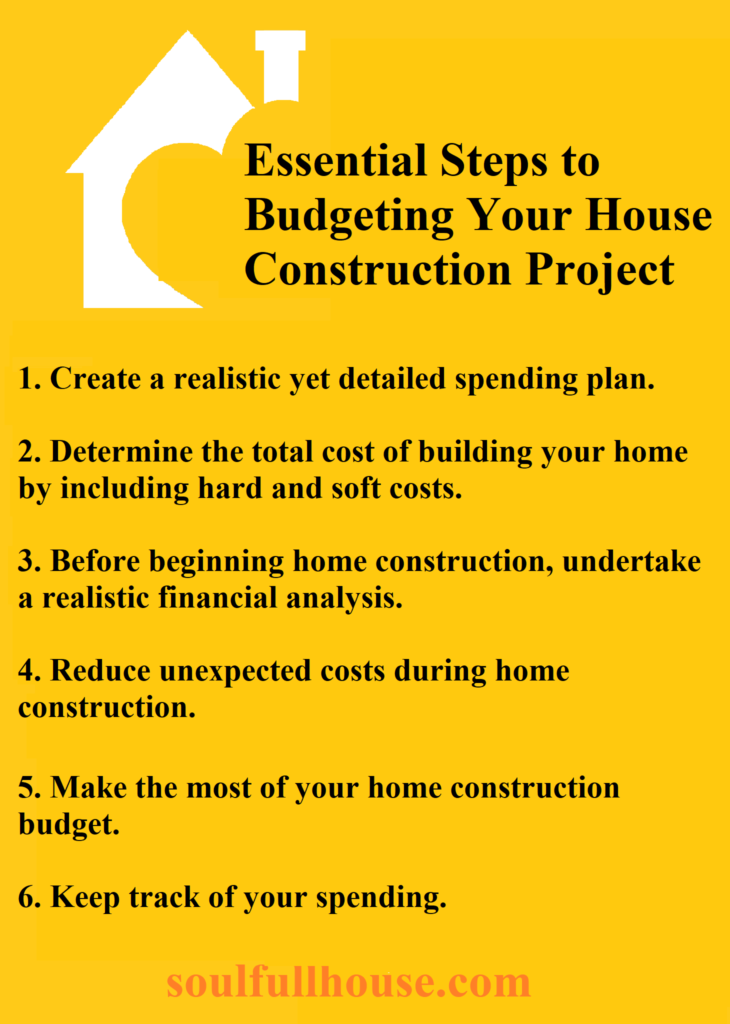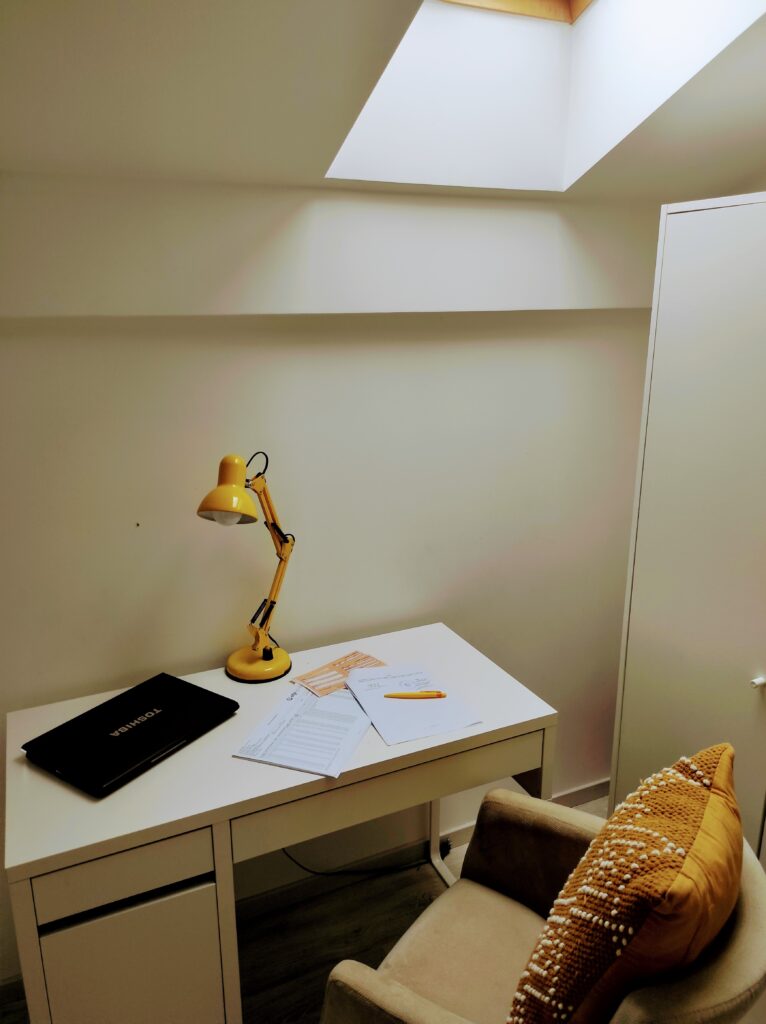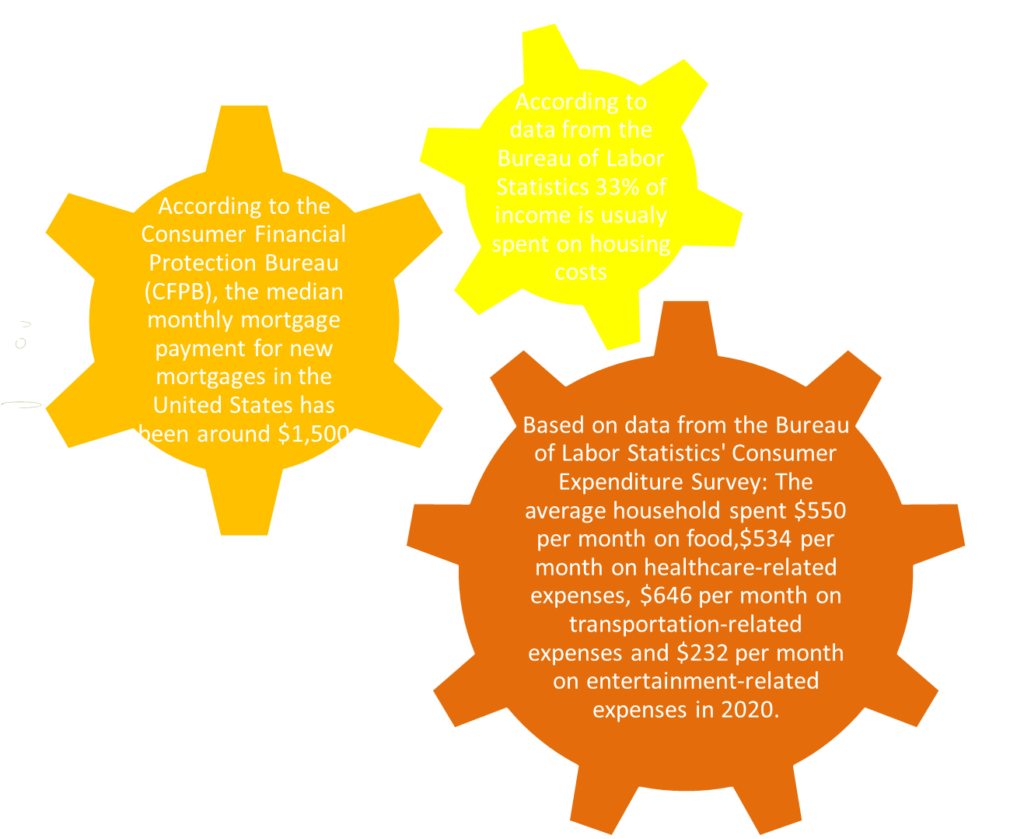Are you planning to build your dream house but worried about how to budget it? Building a house is a significant investment, and it’s crucial to plan your finances properly to avoid unexpected costs and stay within your budget. In this blog post, we’ll walk you through the six essential steps to budget your house construction. So, let’s dive in and learn how to budget your house construction like a pro!

How to budget your house construction?
There are six steps you need to take to budget your house construction:
1. Create a realistic yet detailed spending plan.
2. Determine the total cost of building your home by including hard and soft costs.
3. Before beginning home construction, undertake a realistic financial analysis.
4. Reduce unexpected costs during home construction.
5. Make the most of your home construction budget.
6. Keep track of your spending.

1. What is included in your home construction budget?
A proper budget for your house development is critical to the project’s success. You must include the cost of supplies, labor, permits, and other fees, as well as any additional charges you can think of, as exact as your budget is tight. You should also consider the cost of renting or acquiring equipment, as well as any unforeseen charges. Once you understand the prices, you may design a realistic budget to help you stay on target.
It’s also a good idea to look into any tax breaks or incentives that might be available in your area. Many states and local governments provide tax credits or incentives to homeowners who build their own homes, which can assist to lower overall project costs. Additionally, researching home energy efficiency regulations might aid in cost savings. Many states and local governments offer incentives to homeowners who build energy-efficient homes, also.
The primary requirement for you to be able to achieve this is to have a detailed and accurate specification of everything you need to pay. So, make a detailed plan, determine your cost limit, which you will never, ever, ever exceed, and establish non-negotiables. Everything else may be adjusted as needed.
2. How to estimate the cost of building your house?
It is critical to estimate the cost of constructing your perfect home in order to stay within your budget. It is important to look into the prices of supplies, labor, licenses, and other costs in your area. You should also evaluate how long it will take to complete the project, as this will have an impact on your budget. A consultation with an experienced appraiser can also help you get a more accurate estimate of the cost of building your home.
The first step is to gather data on standard amounts. You can generally do this using the internet, but keep in mind that the only reliable and proper method is to request a specific offer. The second step is to examine each individual item and look for methods to save money.
When budgeting, it’s helpful to consider in terms of hard and soft costs. The hard expenses include the costs of building the structure, including what you pay the builders. Anything other than “hard assets” would be considered soft costs. Soft costs can easily equal half of the project’s total cost.
Hard Costs
Material
Labor
Soft Costs
Cost of any Excavating, Building Tear-Down, or Lot Prep
Taxes
Landscaping
Finishes, Selections and Appliances
3. Analyzing your finances before starting home construction.
It is crucial to check your finances before beginning the home construction process. This includes assessing your present income, debts, and other outgoings. Understanding your financial condition clearly might assist you ensure that you can afford to complete the job.
It is important to be honest with yourself about your budget when reviewing your money. Also, consider any potential savings or revenue you may get during the construction phase.
Another critical step is to obtain pre-approval if you intend to finance your construction with a loan. That way, there will be no awful surprises.

4. How to control unforeseen costs during home construction?
It is important to pick a reputable and competent contractor or subcontractor to keep unplanned costs to a minimum during the home construction process. It is critical to spell out the obligations of both parties in as much detail as possible in the contract. Furthermore, do have a clear set of expectations and agreements in place to minimize misunderstandings or cost conflicts.
Another thing you can do to keep unplanned expenditures under control during home construction is to be aware of tiny expenses that might add up over time.
From my experience, I can say that there is one method that produces the best outcomes in terms of cost control. Always insist that subcontractors notify you several (at least two) days in advance about what materials, tools, machinery, or anything else they require. This allows you to not only to explore where you can purchase what you’re seeking for most cheaply, but also to calculate the exact quantity and record the cost. I always use this method and do not accept noncompliance; yet, I assess the cost to the subcontractor.
5. How to get the most value out of your home construction budget?
It’s important to think about the long-term value of your home construction project as well as the operational costs that you will have during its lifetime. Investing in quality materials and products will ensure that your home lasts for many years to come. Additionally, energy-efficient materials and appliances can help you save money on utility bills in the long run. Finally, consider the resale value of the home. Investing in features that will make your home more attractive to future buyers will help you get the most out of your budget when it comes time to sell. So, sometimes you have to invest more to save more in the long run.
6. Track Your Spending
It is vital to keep track of your spending when building a house in order to stay within budget. You should continually keep track of your spending and compare them to the expected amounts. This will assist you in identifying areas of overspending and making necessary modifications.
Avoid the “May as Well” Quicksand, don’t be a perfectionist, and maintain open communication with all construction stakeholders.
To efficiently track your expenditures when building a house, you must devise a strategy that works for you. A spreadsheet, budgeting software, or simply pen and paper can be used.
When tracking your spending when building a house, it is also important to keep all receipts and invoices. This will also help you ensure that all costs are accounted for and that you stay within budget.
In conclusion, budgeting for house construction is an essential step towards the successful completion of your dream home. It involves creating a detailed spending plan, estimating the total cost of building your home, analyzing your finances, controlling unforeseen costs, maximizing your budget, and tracking your spending. By following these six steps, you can stay within your budget and ensure that your home construction project is a success. Remember to prioritize quality materials and energy-efficient options to add long-term value to your home. With careful planning and attention to detail, you can build your dream home without breaking the bank.
